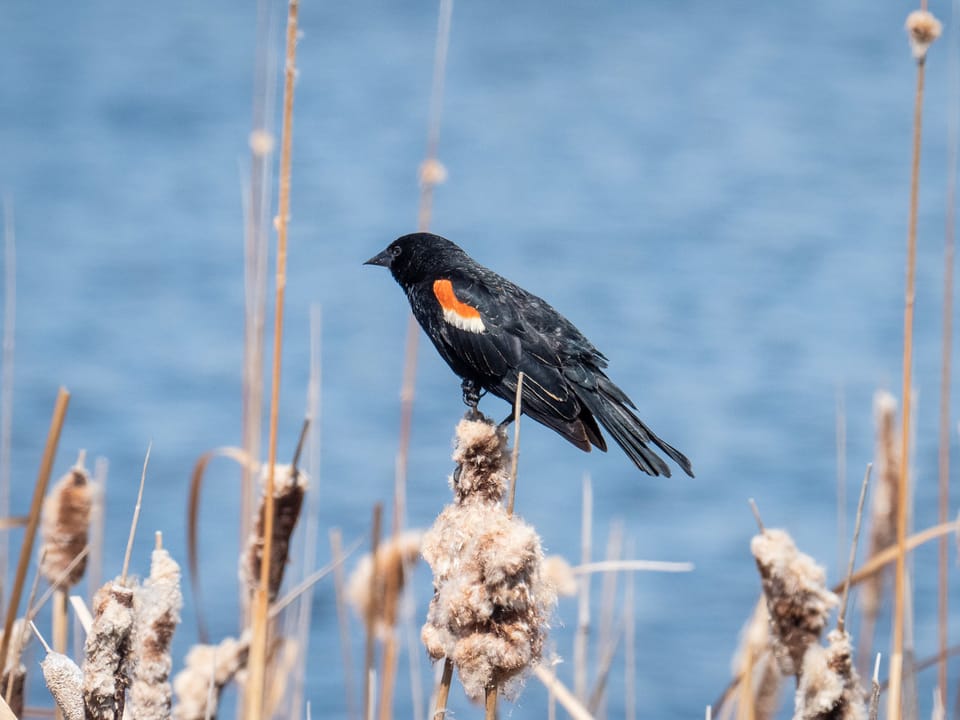Farmland Drainage & Irrigation / L’Eau Agricole: Éco dans les Prairies

Farmland Drainage & Irrigation
You can listen to the February 2 episode of Éco dans les Prairies in replay. Below are the links if you would like to learn more about the subjects we discussed.
In some agricultural areas there is too much water, in others, not enough. Farmers often decide to drain wetlands in order to increase the size of their fields and to facilitate harvesting with large equipment. However, farmland drainage can lead to flooding in other areas and a loss of wildlife habitat. Farmers also lose a means of filtering out pollutants, such as excess fertilizer, as well as a means of conserving water for use during dry spells.
The government of Saskatchewan is proposing to expand the irrigation network around Lake Diefenbaker. That appears to be a good idea, but is there enough water? Alberta is also enlarging its irrigation system and there is less runoff from the glaciers. There are also other draws on the water – tourism, industry, cities, and wildlife.
L’Eau Agricole
Vous pouvez écouter la chronique Éco dans les Prairies du 2 février en rattrapage. Voici ci-dessous les liens si vous voulez apprendre davantage sur les activités dont on a parlé.
Dans certains endroits, il y a trop d’eau, dans d'autres, il n’y en a pas assez. Souvent des fermiers décident de drainer des étangs. Ça élargit les champs et facilite la récolte avec des moissonneuses et d’autres équipements de plus en plus grands. Mais ça peut mener aux inondations dans d’autres endroits et une perte d’habitat pour les animaux sauvages. On perd un moyen d’éliminer des polluants tel que des engrais excessifs et un moyen de conserver de l’eau pour les périodes de sécheresse.
Le gouvernement de la Saskatchewan propose d’élargir le système d’irrigation autour du Lac Diefenbaker. Ça paraît être une bonne idée – mais est-ce qu’il y aura assez d’eau ? Alberta est en train d’élargir son système d’irrigation et les glaciers ne produisent pas autant d'eau de fusion. En plus, il y a d’autres tirages sur l’eau – le tourisme, l’industrie, les villes, les animaux sauvages.
Additional Resources
Evaluating the Benefits & Risks of the Lake Diefenbaker Irrigation Project [EcoFriendly West]
We’re Losing Our Wetlands and That’s a Big Problem [EcoFriendly Sask]
Book Review: Water Always Wins by Erica Gies [EcoFriendly West]
Saskatchewan’s Farmland is Caught Between Profit and Habitat [The Narwhal]
Citizens Environmental Alliance of Saskatchewan (a group of citizens raising concerns about farmland drainage)
Protecting the Saskatchewan River Delta [CPAWS Saskatchewan]
Penny McKinlay, EcoFriendly West, presents Éco dans les Prairies, a bi-weekly column for Pour faire un monde, Radio-Canada Saskatchewan, on nature and climate action. Although designed for a Saskatchewan audience, much of the information is of general interest.
Penny McKinlay, EcoFriendly West, présente Éco dans les Prairies, une chronique toutes les deux semaines sur Pour faire un monde, Radio-Canada Saskatchewan, qui parle de la nature et de l’action climatique. Prévu pour la Saskatchewan, il couvre quand même des sujets d’intérêt général.
Photo credit: https://www.flickr.com/photos/apmckinlay/49901283006
EcoFriendly West informs and encourages initiatives that support Western Canada’s natural environment through its online publication and the Nature Companion website/app. Like us on Facebook, follow us on Twitter, or subscribe by email.

Member discussion